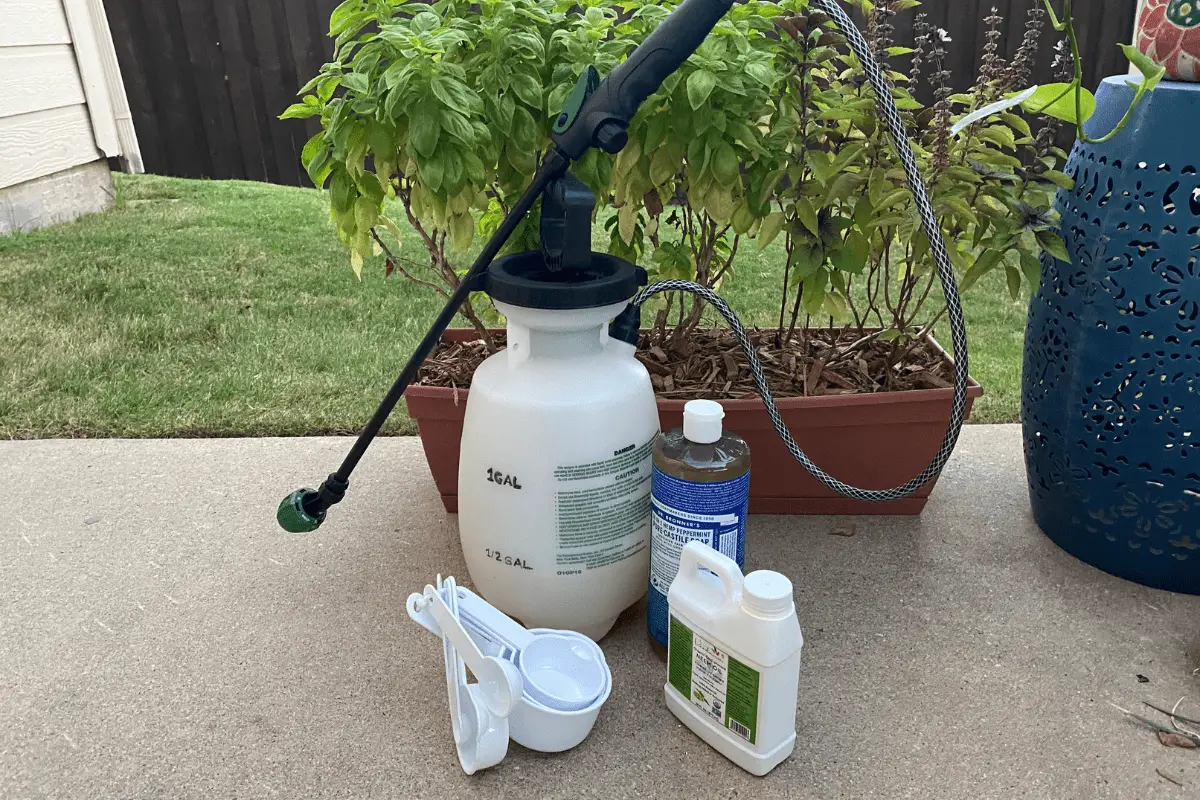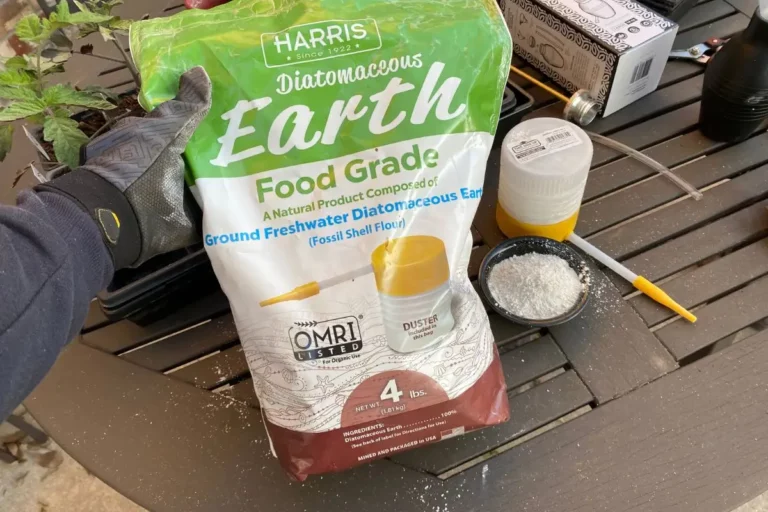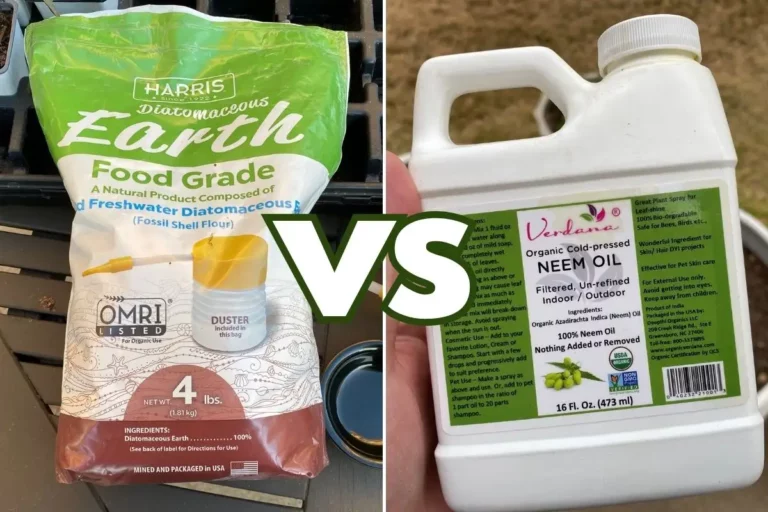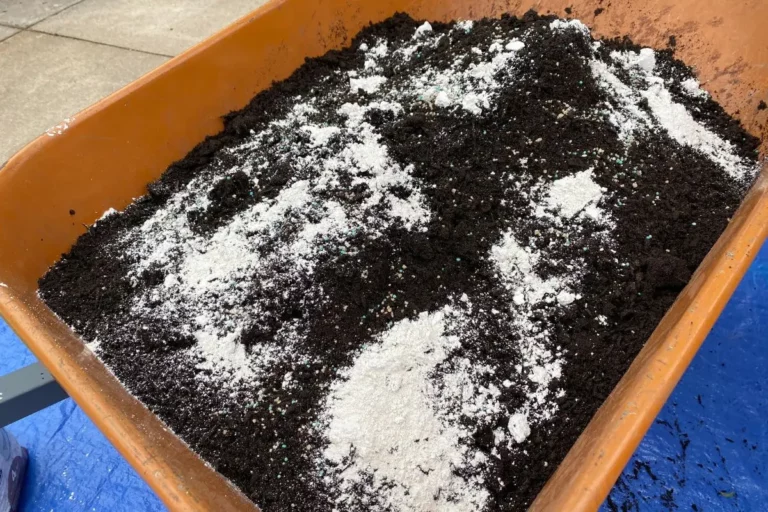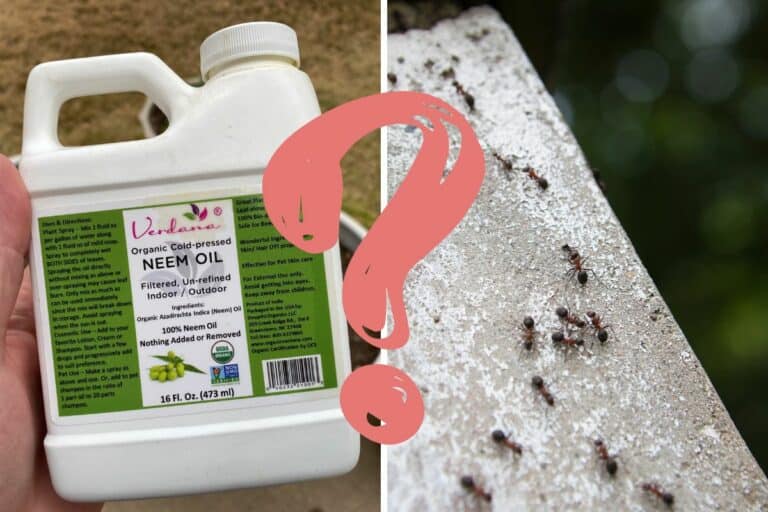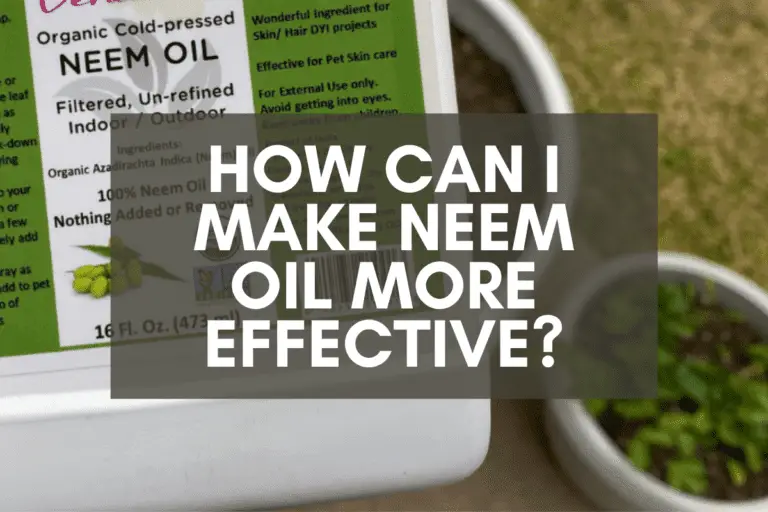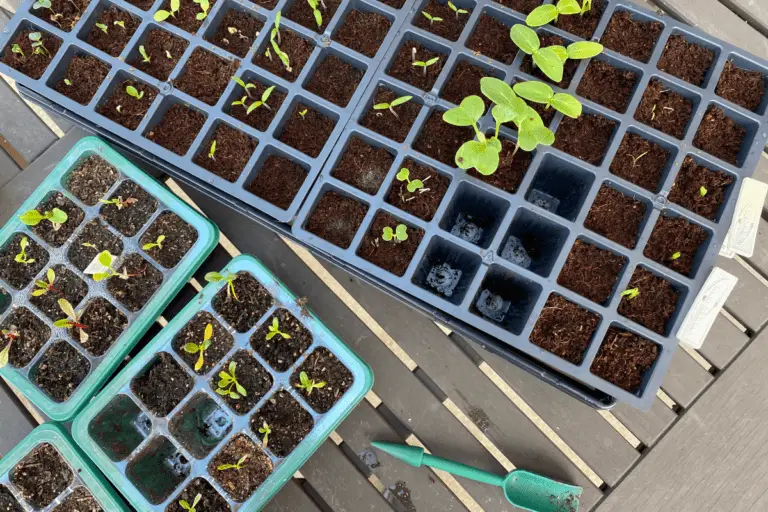Rinsing Neem Oil Off Plants: Should You Do It?
Neem oil is a powerful yet safe natural insecticide that I regularly use in my garden. It’ll cover garden pests in a light layer of oil and interfere with their biological and hormonal systems, causing reproductive disruptions and eventual death.
But neem oil is, as the name suggests, an oily product that, once applied, will adhere to the leaves, flowers, and fruit of your favorite garden plants, giving them a temporary sheen.
When I was a novice gardener, I wasn’t sure if this was okay or not. Could I eat veggies that had been sprayed with neem oil? Did I need to rinse the plants off with water first?
Plants sprayed with neem oil don’t need to be rinsed off, although fruit harvested within a week of spraying should be washed well with soapy water. Neem oil will dry in a few hours, but its insecticidal elements will break down completely within 2-5 days after the initial application.
Care should be taken whenever you spray your plants with neem oil. If it’s applied at the wrong time or before the arrival of adverse weather conditions, neem oil can damage or even kill otherwise healthy plants, leaving behind burned, decaying plant material.
However, if it’s applied properly, neem oil is an excellent natural insecticide that’ll get rid of the worst insect pests while allowing you to continue growing healthy, organic veggies in your garden.
Does Neem Oil Need to Be Rinsed Off? Things You Should Know
As I noted above, you don’t need to rinse off neem oil after you’ve applied it to your plants. It’ll dry quickly and break down in less than a week.
That being said, there are some things you’ll want to keep in mind when it comes to applying neem oil as well as a few scenarios where you might find it necessary to rinse the neem oil off your plants.
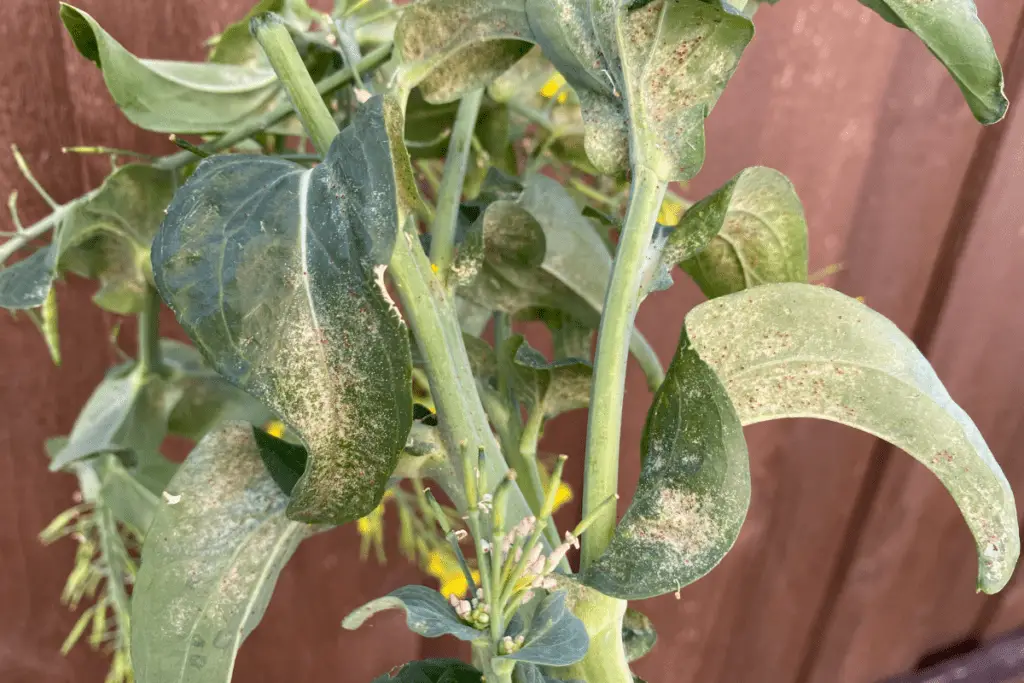
What Bugs Are You Trying to Kill?
Neem oil works best against soft-bodied bugs of all kinds: aphids, fleas, fungus gnats, mealybugs, spider mites, thrips, and whiteflies. When coated in neem oil, these bugs become unable to feed and reproduce and thus die within 1-2 days after application.
Neem oil is also effective when sprayed on the nymphs of some hard-bodied bugs–such as leaf-footed bugs, squash bugs, and stink bugs–but in general, it’s not very effective against such pests. It might cause them to scurry away or fly off–and it could disrupt their reproductive systems (which is helpful)–but it won’t kill them on contact like it does soft-bodied bugs.
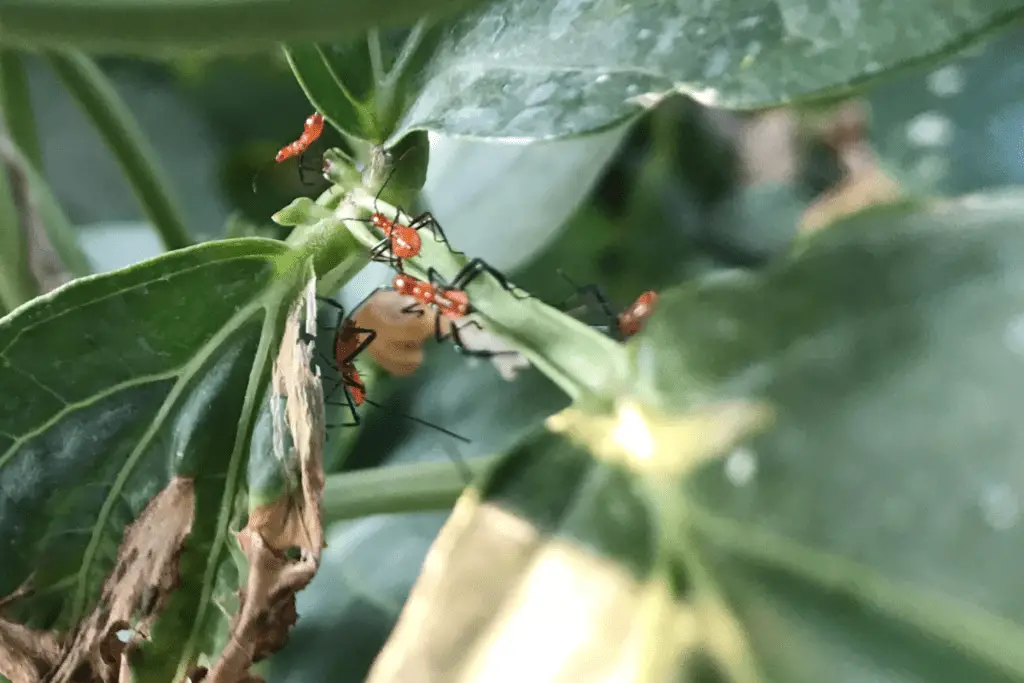
To test this out, I once sprayed neem oil on a tomato plant that had a bad flea beetle problem, just to see what would happen. The result? Absolutely nothing. The flea beetles didn’t care one bit, and my problem didn’t go away, so it clearly did nothing to stop them from reproducing.
I’ve seen some bloggers suggest that you should rinse off your plants if you spray them too thoroughly with neem oil, but I don’t agree with such suggestions.
I had a bad spider mite infestation some time ago–which I’ve discussed in articles on what spider mites look like, where they come from, how they spread, and what plants resist and repel them–and I got very, very aggressive with my neem oil applications because I was afraid I’d lose an entire section of tomato plants.
Long story short, I sprayed those plants on and off for weeks, doing so each time until they were literally dripping with neem oil. That experience taught me that as long as I sprayed my plants with neem oil in the early evening, it was basically impossible for me to spray them too much.
When Are You Spraying Your Plants?
Although I don’t recommend rinsing off your plants after you’ve sprayed them with neem oil, here’s a scenario where you definitely should: if you apply neem oil at the wrong time of the day.
Years ago, I was in my garden one morning and wanted to apply a soapy water insecticide to a few plants. I picked up what I thought was my insecticidal soap sprayer and sprayed my plants thoroughly. Unfortunately, I hadn’t yet learned that I needed to label my sprayers, and I realized that I had accidentally sprayed my plants with neem oil.
If I had done so in the evening, I wouldn’t have cared, but I sprayed them with neem oil in the late morning, and I knew it was going to be hot that day, which would likely burn my plants.
To mitigate this problem, I immediately sprayed the plants thoroughly with a water hose, hoping to wash off whatever I could before the day warmed up too much. Thankfully, the day was not quite as hot as I had initially anticipated, and I had washed my plants well. Minus several burned leaves on 1-2 tomato plants–foliage burns that weren’t even noticeable a few weeks later due to continued growth–my plants came through just fine, and I had an incredible tomato harvest that year.
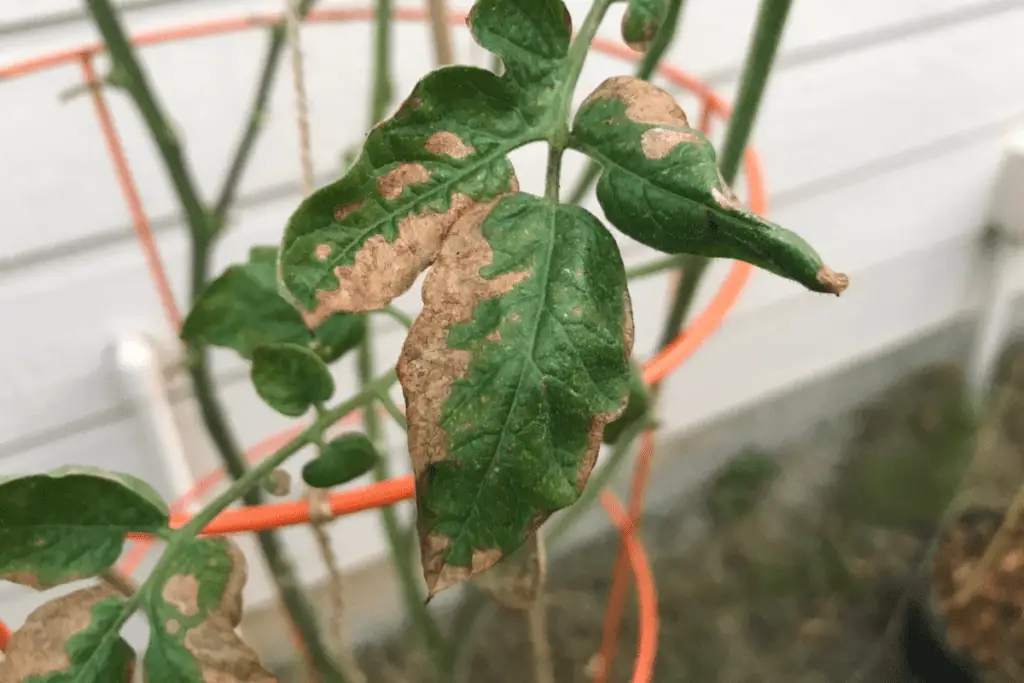
There are two lessons to take away from this early mishap of mine:
- Label your spray bottles clearly. That way, you’ll avoid mistaking one for another.
- Only spray neem oil in the evenings. If you do so, you’ll never have to worry about accidentally burning your plants, and you’ll also avoid killing off any beneficial pollinators that might be flying around during the day
How Often Are You Reapplying Your Spray?
There’s another reason why you might consider rinsing off neem oil: if you’ve applied it several days in a row.
When I was a newbie gardeners–and before I began tracking my insecticidal treatment schedules–I did this once or twice, absentmindedly spraying my plants whenever I saw pests on them. I didn’t worry too much about it at the time since the applications were done in the early evening, but if I had been concerned, I could’ve sprayed the plants off, then waited 5-7 days before applying neem oil again.
Even though I overdid it with the neem, my plants were fine. These days, I’m much more careful with neem oil sprays because I take greater care to avoid spraying while pollinators are active and because I don’t want to waste anything unnecessarily.
When spraying my plants, I typically put the sprayer nozzle on either the “mist” or “flat” setting depending on how bad the insect infestation is.
You’ll waste less neem oil using the mist setting, but in general, it’ll take longer to spray your plants. The flat setting is not as accurate, but it’ll cover the plants in neem oil spray pretty quickly. It also uses more pressure than the mist spray, which can be helpful when it comes to certain kinds of pesky bugs (like aphids and spider mites).
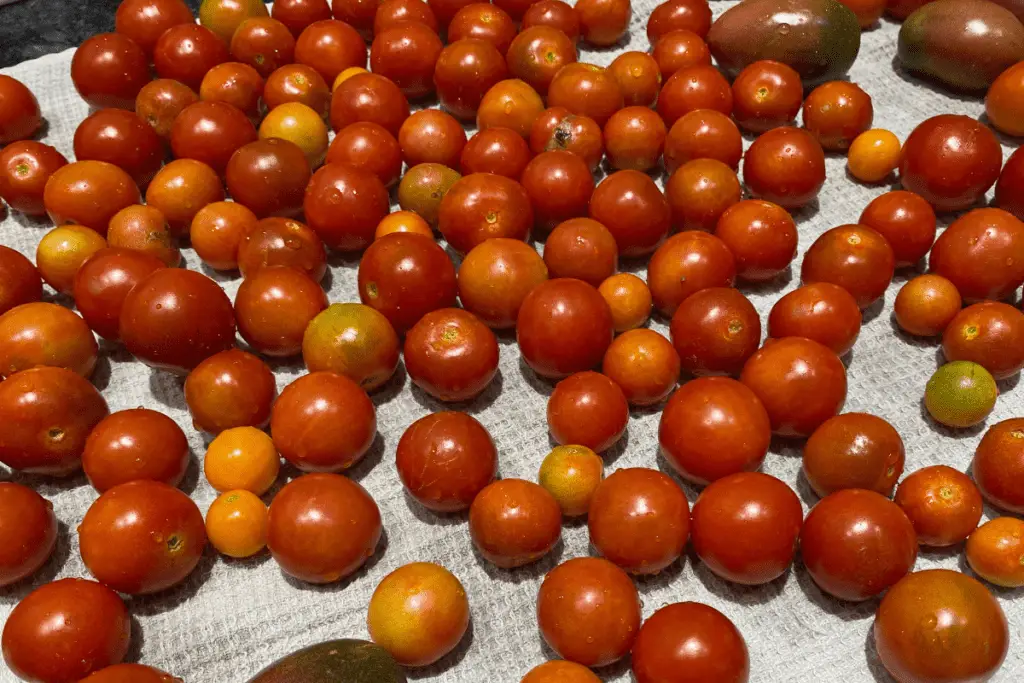
Can You Eat Vegetables Sprayed with Neem Oil?
Unlike commercial insecticides–which often require you to wait a specified period of time before harvesting anything edible–neem oil doesn’t carry such warnings because it’s a natural product.
Generally speaking, I wait 2-3 days after spraying my plants with neem oil before I harvest anything from them, then wash my veggies thoroughly. I do so because I want the neem oil to work its insecticidal magic for as long as possible and to break down a bit before I eat what I’ve sprayed.
But there have been times where I’ve sprayed a plant with neem oil, then realized that I had intended to harvest a few things for supper that evening. In such instances, I’ve gone ahead and harvested what I wanted, but I’ve always made sure to give everything a thorough bath in a bowl of warm, soapy water before rinsing it off well.
If you can avoid doing so, I’d recommend it since you’ll get the most out of your neem oil that way and allow it to break down naturally, but if you wash your veggies well enough, your harvest will be just fine to eat.
Does Neem Oil Wash Off in the Rain?
As noted above, neem oil breaks down quickly, especially when it’s exposed to the elements.
Heavy rains will rinse off neem oil from most plants, although light rains might leave some of the residue behind on the undersides of leaves. For this reason, neem oil should be reapplied shortly after a rain, once the plant has had time to dry out completely.
How Long Does Neem Oil Stay Active?
Neem oil contains azadirachtin, a natural chemical compound that wreaks havoc on bugs’ biological systems.
After an application, neem oil will remain on plants for 4-5 days, but the azadirachtin will only remain viable on plants for 1-2 days before it starts breaking down. This means that infestations should be treated somewhat frequently (at least once per week) until the situation is under control.
If you’d like to learn more about making homemade neem oil sprays and what you might expect if you’re trying to help your plants recover from insect infestations, check out these related articles:
